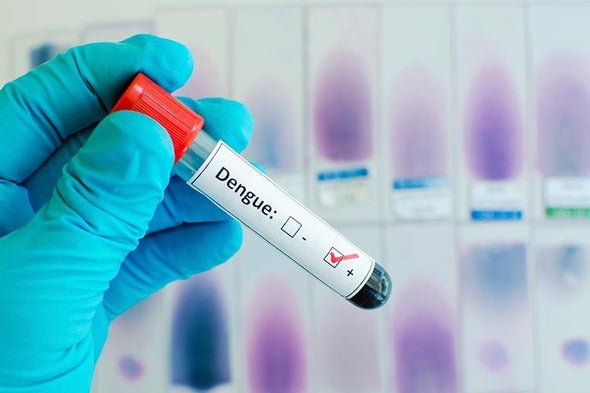
Why to worry?
Today, dengue is an alarming health risk in front of the world considering its morbidity and mortality. Dengue is endemic in more than 100 countries around the globe and known to affect more than half of world’s population. Worldwide, as many as 400 million people gets affected by the ill effects of dengue every year, including some fatally. As global and land use increases, the potential risk of acquiring vector-borne viral also intensified. Evidence signifies that such vector-borne diseases have exaggerated their severity due to climate, environmental change and globalization.
With the enhancement of monsoon in India, cases of dengue are reportedly on spike. Precedent statistics of dengue have revealed the severity of the disease in India, where around one thousand people have lost their lives due to dengue in last five years.
Total Number of Dengue Cases and Deaths Registered in India Since 2015
| Year | Total Number of registered cases | Total number of fatalities registered |
|---|---|---|
|
2015 |
99,913 | 220 |
| 2016 | 1,29,166 | 245 |
| 2017 | 1,88,401 | 325 |
| 2018 | 1,01,192 | 172 |
| 2019 (Till May 26) | 5504 | 5 |
What is Dengue?
Dengue is a mosquito borne viral disease caused by species of Aedes mosquito such as Aedes aegypti and is present in both rural and urban areas. Symptoms are witnessed between three to 14 days after infection of the dengue virus and include high fever, headache, vomiting, body aches, and rashes. The acute illness can last up to 10 days and complete recovery can take up to a month.
In a few cases, Dengue Haemorrhagic Fever (DHF) might develop which can result in internal bleeding, enlargement of the liver, and high fever which is potentially fatal. This usually occurs in patients who have previously been infected with one strain of dengue fever, then contract a different strain of the disease.
Vaccinations / Cure:
Severe dengue is very serious, and at times fatal too. A vaccine named CYD-TDV is available in some locations, but in 2017 the manufacturer recommended that the vaccine can only be used for people who have previously had a dengue infection. The vaccine can increase the risk of severe dengue in people who have not had dengue. The ongoing research for preventive vaccine DENVax (or TAK-003) is under Phase I and Phase II trials.
According to the Centre for Disease Control and Prevention CDC, about 75 percent of all dengue infections shows no symptoms. About 20 percent of dengue symptoms are mild, but remaining five percent will advance severe, life-threatening symptoms.
Expert Analysis:
The cases of vector-borne viral diseases are usually reported between July and November, but this period may stretch up to mid-December. With the enhancement of monsoon season and considering in mind that the peak transmission of dengue fever occurs in rainy season, the potential risk of more such cases is extremely high.
Things To Do:
Risk Mitigation Advices:
Sources :
https://timesofindia.indiatimes.com/topic/Dengue-Fever
https://nvbdcp.gov.in/index4.php?lang=1&level=0&linkid=431&lid=3715
https://www.who.int/news-room/fact-sheets/detail/dengue-and-severe-dengue
Share this article!
Contact our team that is always ready to help you with any possible question, problems or information
Contact Us